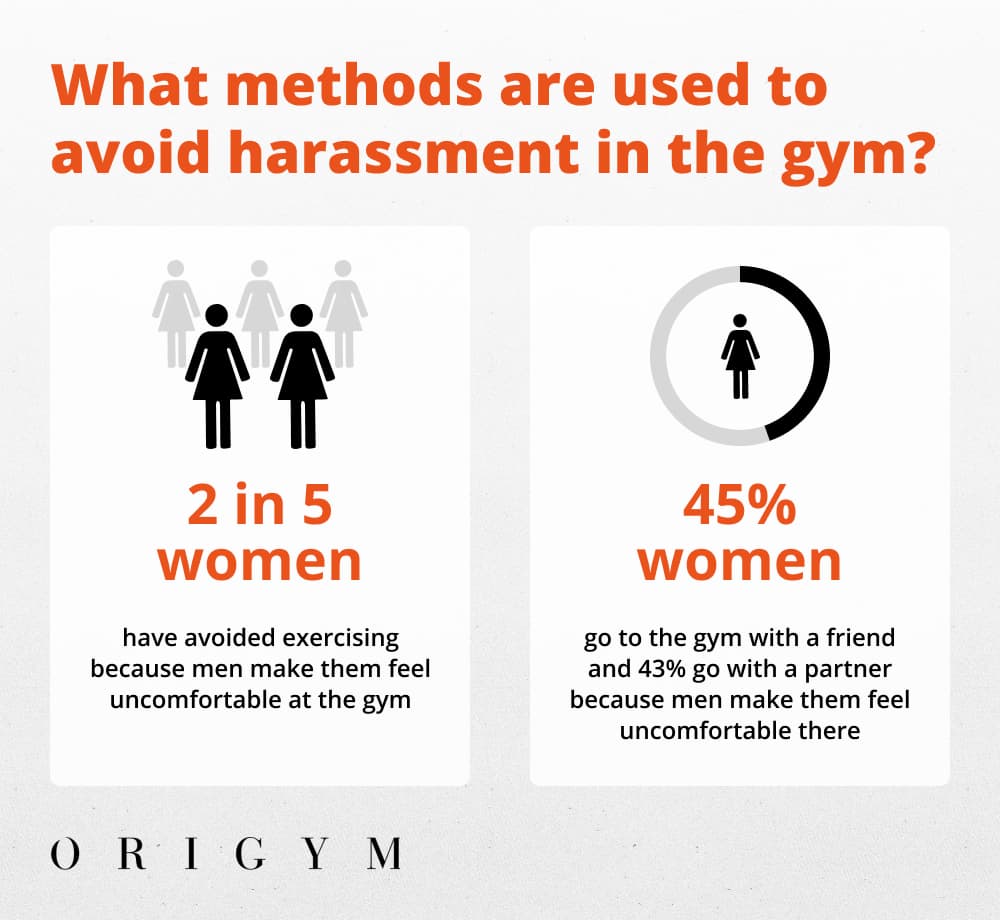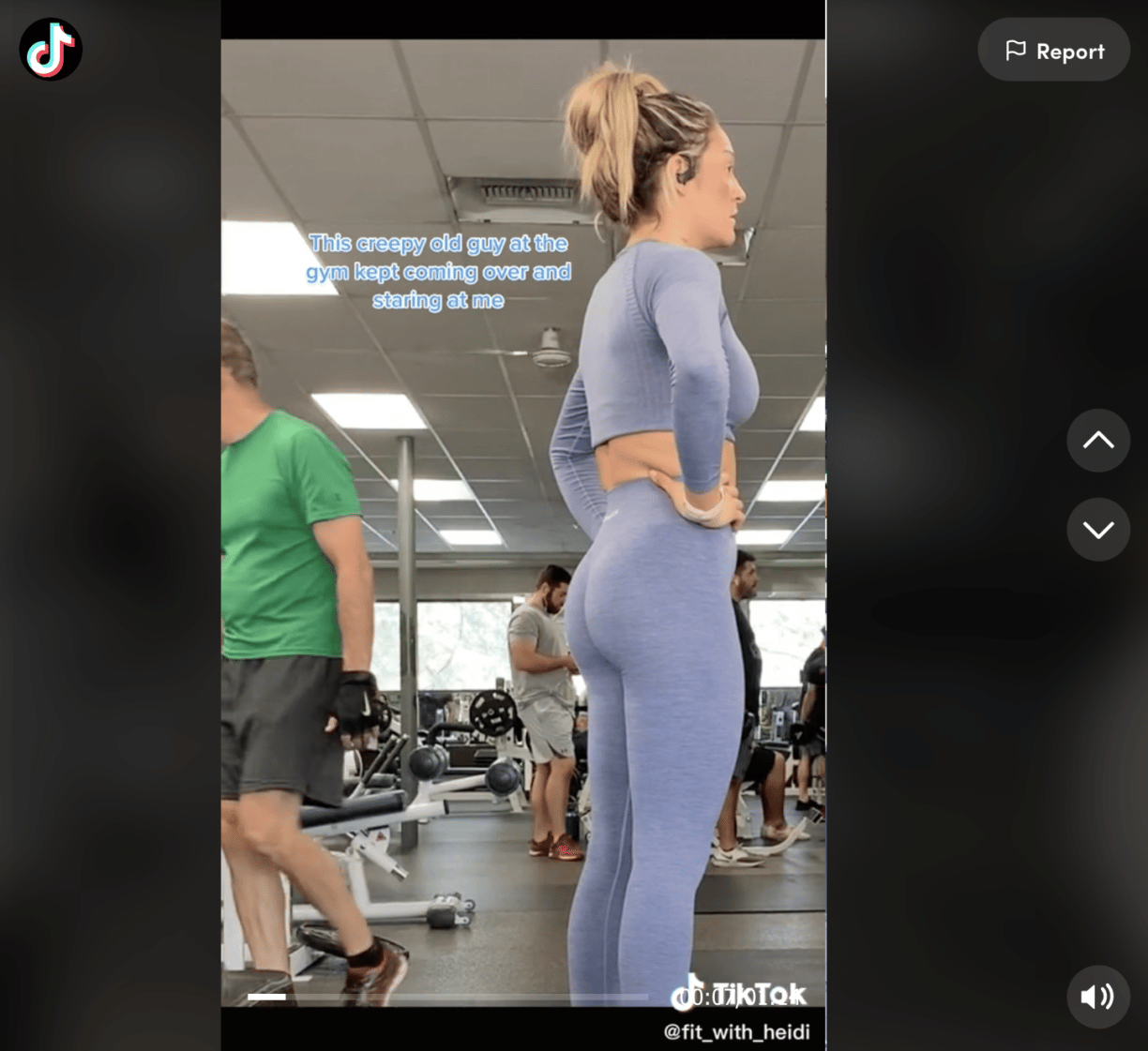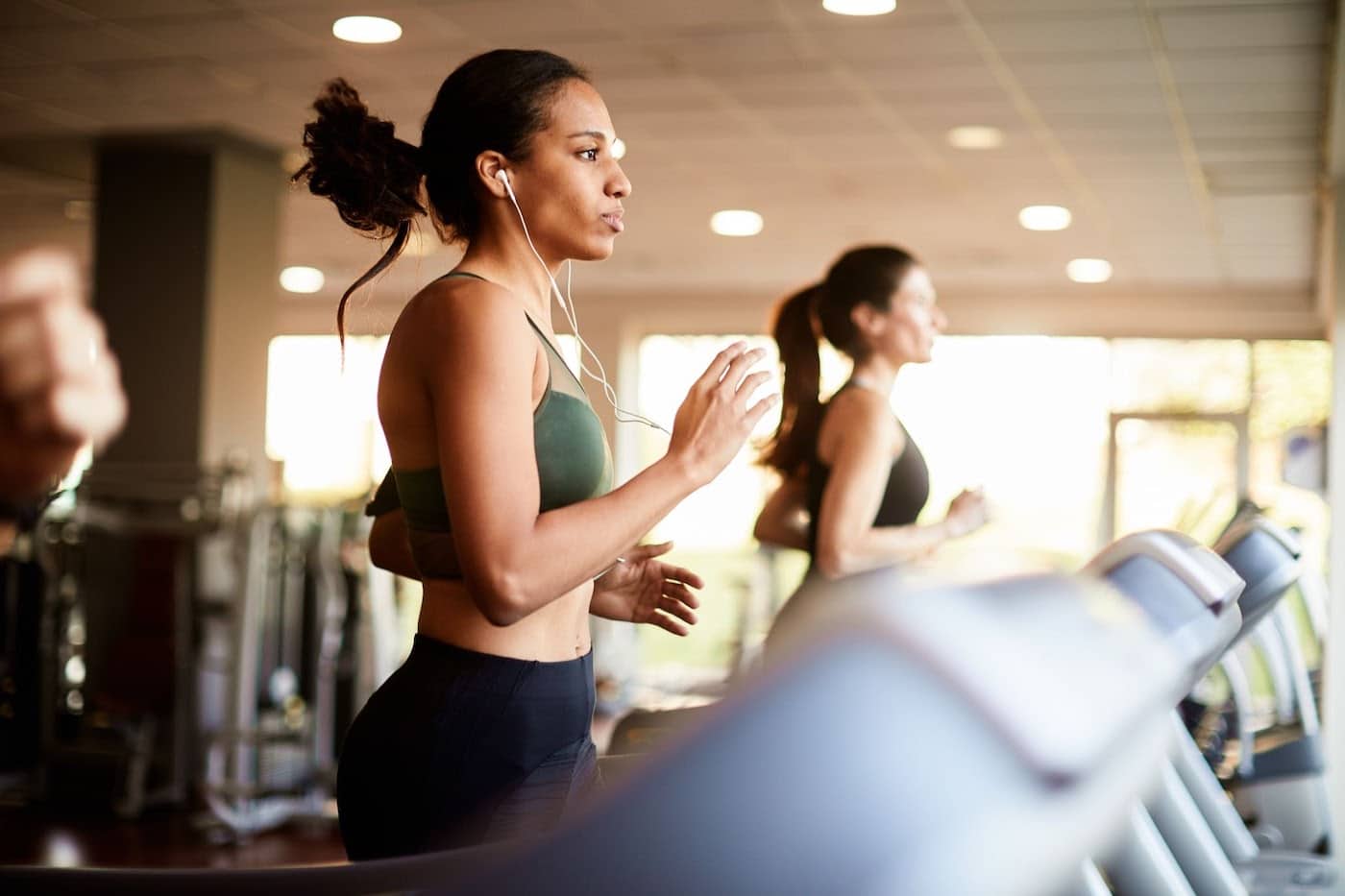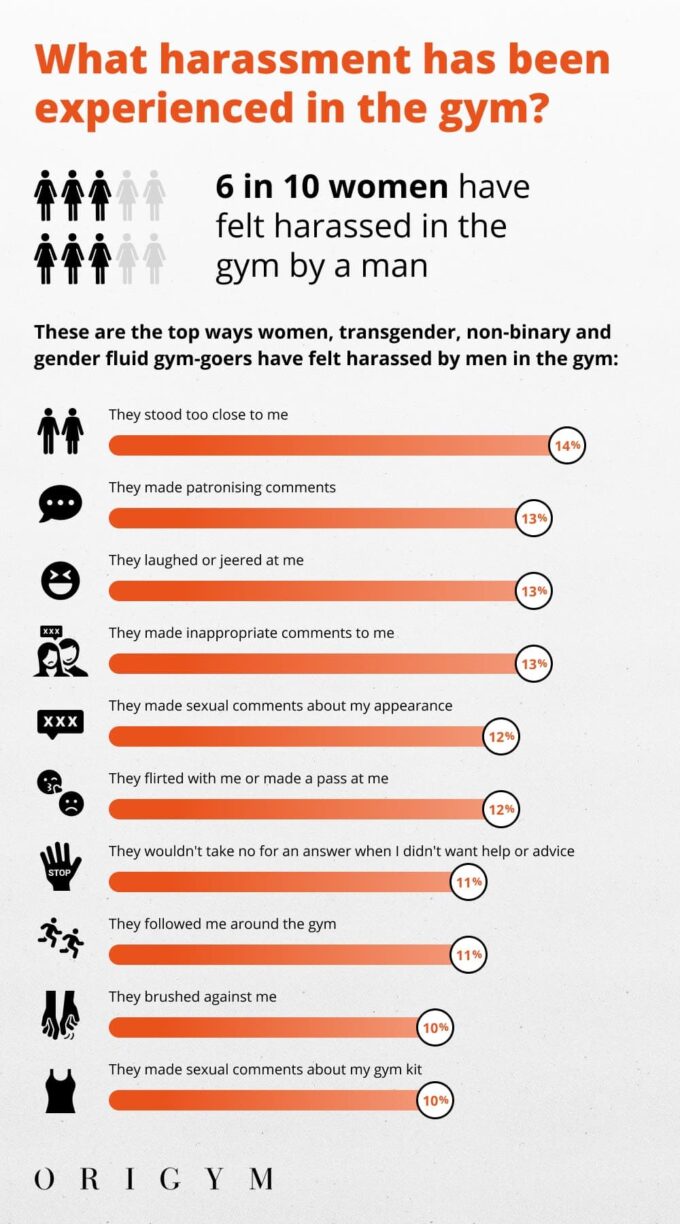A new report from personal training experts, Origym, has investigated harassment experiences in the gym, revealing how many women have experienced intimidation and harassment whilst working out.
In the past 12 months, searches for ‘women’s-only gyms’ have increased 69%. Origym decided to investigate by surveying over 1,000 gym-goers of all genders to highlight what is causing the increased interest in women’s gyms.
The report also details:
- The most common types of harassment for women, transgender, non-binary and gender fluid people
- Then lengths womens go to in order to avoid feeling uncomfortable
- Why women want women’s only gyms and PTs
New report reveals 6 in 10 women have been harassed in the gym
The results of the Origym report revealed widespread sexual harassment in gyms across the country.
Women, transgender, non-binary and gender-fluid gym-goers cited encounters of men making a pass at them, following them around the gym, and sexual remarks as some of the most common gym harassment.
In reviewing the responses, it appears that sexual harassment is not just categorised as a physical threat. While this is still highly prevalent, verbal intimidation is also common and these make women feel just as uncomfortable.
Over 61% of women admitted to having felt harassed at least once in the gym by a man. At the gym, women want to simply exercise and relax, so unwanted advances, flirting and sexual or patronising comments make for a highly uncomfortable experience.
It’s clear from this, that unwanted behaviour – whether the intention is compassionate or complimentary – isn’t justifiable if it’s perceived as harassment by women.
2 in 5 women have avoided exercising at the gym because men make them feel uncomfortable
Women having to shun the gym or change their behaviour should never be the answer.
However, 2 in 5 women have made the decision to avoid the gym altogether because men have made them feel uncomfortable there.
It’s a stark reality that women could end up getting less exercise due to avoidable gym intimidation.

Women feel the need to adapt how they behave at the gym following negative encounters too, with nearly half taking a friend or partner to work out with them because men make them feel uncomfortable.
Similarly, for those that do still exercise in the gym, they feel the need to avoid certain areas. Women mostly stay out of the resistance area, with 18% of those that do citing the reason as men making them feel uncomfortable.
Crossing the divide into the male-dominated spaces appears to be intimidating, and some feel comfortable in different areas of the gym.
1 in 3 women want a women’s-only gym so they can feel safer
Of the women asked, 31% said they would see a benefit to women’s-only gyms so that women can feel safer and more comfortable.
While this isn’t necessarily a new phenomenon, women’s gyms have been receiving a lot of attention on TikTok recently, with the hashtag #WomensOnlyGym at 21 million views, and counting.
Personal trainer, Heidi Aragon, was recently featured across the UK press for her response to gym harassment.
Heidi caught an older man repeatedly staring at her as she worked out, and was forced to call her husband over and stand next to her in a bid to block him (highlighting further why nearly half of women want to go to the gym with their partner).
She ended up confronting him and exposing him on TikTok:

Women are 7 times more likely to specify they want a female PT, than a male PT
Just 4% of women would specify that they want a male personal trainer, compared to 29% who would only want a female one.
For women who specify they’d want a female personal trainer, we asked them to explain why, these are just a few of the responses:
- “I’m scared of male violence”
- “I don’t want men ogling me”
- “Would feel more comfortable”
- “More comfortable with another female”
- “Less threatening”
- “Less self conscious”
- “I would feel more comfortable and less judged”
- “I feel the most comfortable in gym settings around other women”
- “Feel much safer and relatable”
- “Feel less intimidated and embarrassed”
Another 2021 study from Origym found that in the last five years, the UK has seen a 17% increase in women becoming qualified as personal trainers.
The results showed a year-on-year increase in the number of female students enrolling into personal training courses, with the ratio gap of men to women consistently minimising.
The study provides evidence to suggest that the fitness industry is becoming more gender-inclusive, at least from a professional standard, and by the current trend is forecasted to see an equal split between genders within the next few years.
You can find the full and intensive report from Origym here: origympersonaltrainercourses.co.uk

